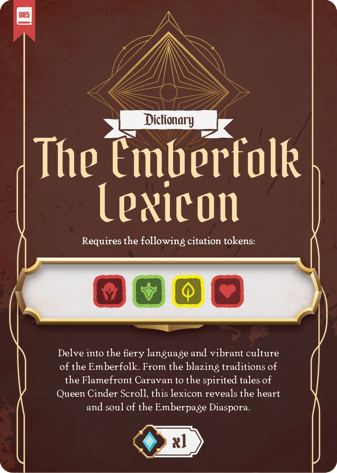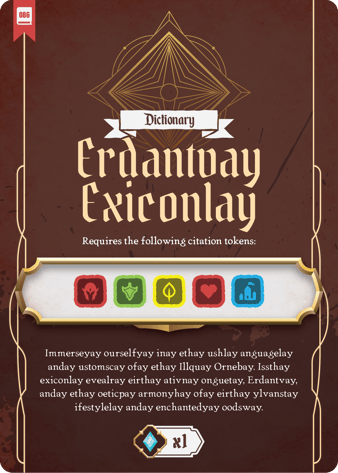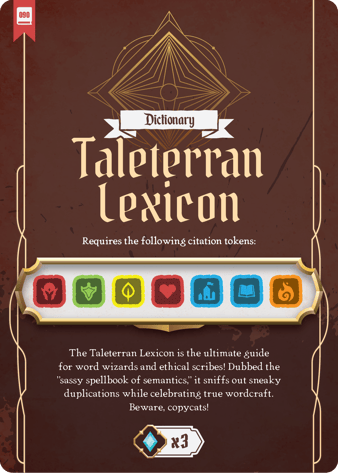
Dictionaries
Words hold power, shaping spells, decrees, and the very foundation of knowledge itself. Dictionaries serve as gateways to understanding, preserving the meanings of words both ancient and newly forged. Whether inscribed by linguistic scholars, enchanted into self-writing tomes, or whispered by the spirits of lost civilizations, these lexicons ensure that language remains precise, structured, and ever-evolving.
Unlike other sources, dictionaries have unique citation elements, including:
The compiler or lexicographer, as dictionaries are assembled rather than authored.
The edition or version, since words shift in meaning over time.
The specific entry consulted, ensuring clarity when citing individual words or definitions.
The repository or publisher, as some dictionaries exist only in hidden archives or enchanted tomes.
Below, you will find examples of dictionary citations, ensuring that the meanings of words remain as eternal as the texts that contain them.
General Language Dictionaries
Language is ever-changing, and scholars must ensure they are using the correct meaning of words, as they were understood in their proper time and context.
Example (Harvard Style): Eldertome Lexicon Committee. (Year 1642). The Grand Archive Dictionary of High Speech (3rd ed.). Eldertome Press.
Enchanted & Specialized Lexicons
Some dictionaries do more than define—they unravel the mysteries of forgotten tongues, translating between mortals and the divine, scholars and the arcane.
Example (APA 7th Edition): Whisperquill, V. (Year 1501). The Silver Tongue Codex: A Guide to Celestial, Infernal, and Eldritch Dialects (Version 5) [Lexicon]. Grand Scriptorium of Etherea.
Scholarly Word Compilations & Etymology Records
Some lexicons do not simply define words but trace their histories, transformations, and hidden meanings—revealing how language shapes and is shaped by the world around it.
Example (Chicago Style): Stormscribe, L. 1389. The Roots of Meaning: A Linguistic History of the Nine Kingdoms. Starlit Press.
Language is the key to understanding, discovery, and even the binding of spells. By citing dictionaries, scholars ensure that words retain their meaning across time, preserving both knowledge and power. To define something is to shape reality itself—choose your words with care.







